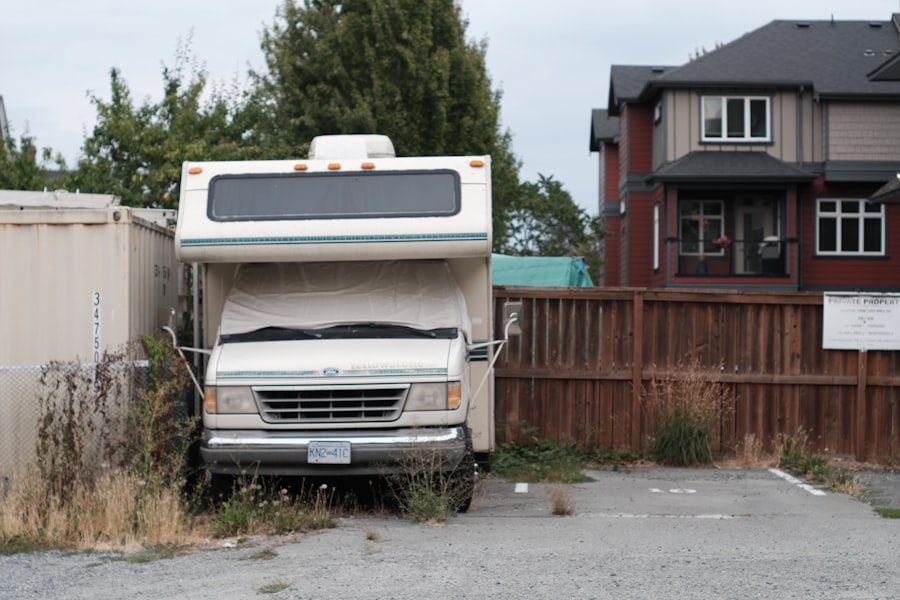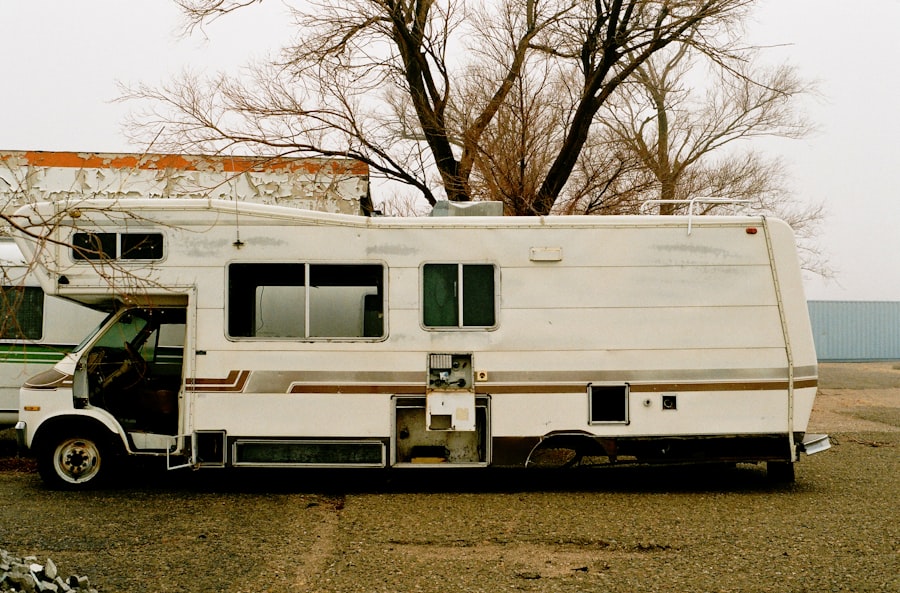Investing in a trailer home and land offers a unique blend of affordability, flexibility, and lifestyle opportunities that traditional housing often cannot match. One of the most significant advantages is the cost-effectiveness of trailer homes. Compared to conventional houses, trailer homes typically come with a lower price tag, making them an attractive option for first-time buyers or those looking to downsize.
This affordability extends beyond the initial purchase; lower utility costs and maintenance expenses can lead to substantial savings over time. For individuals or families seeking a more economical living situation without sacrificing comfort, trailer homes present a viable solution. Moreover, owning land alongside a trailer home provides a sense of permanence and control that renting cannot offer.
Homeowners can customize their property, create gardens, or even build additional structures, fostering a sense of ownership and community. This autonomy allows residents to cultivate their living environment according to personal preferences, whether that means landscaping the yard or installing outdoor amenities like fire pits or decks. The combination of a trailer home and land not only enhances the living experience but also contributes to a lifestyle that values independence and creativity.
Key Takeaways
- Buying a trailer home with land offers affordability and flexibility.
- Location is crucial for convenience, amenities, and lifestyle fit.
- Understanding costs and financing helps manage your budget effectively.
- Customization allows you to tailor the trailer home to your personal needs.
- Navigating zoning and permits ensures legal compliance and smooth ownership.
Finding the Perfect Location for Your Trailer Home
Selecting the right location for your trailer home is crucial, as it can significantly impact your quality of life. Factors such as proximity to essential services, schools, and recreational areas should be considered when scouting potential sites. For instance, a location near grocery stores, healthcare facilities, and public transportation can enhance convenience and accessibility.
Additionally, being close to parks or natural attractions can provide opportunities for outdoor activities, which is often a priority for those living in trailer homes. Another important aspect to consider is the community surrounding the location. Some individuals may prefer a quiet rural setting, while others might seek the vibrancy of an urban environment.
Researching local demographics and community amenities can help you find a neighborhood that aligns with your lifestyle preferences. Engaging with local residents or visiting community events can also provide insight into the social dynamics of the area. Ultimately, the perfect location should not only meet practical needs but also resonate with your personal values and lifestyle aspirations.
Understanding the Costs and Financing Options

When considering the purchase of a trailer home and land, it is essential to have a clear understanding of the associated costs and available financing options. The initial purchase price is just one component; prospective buyers should also factor in ongoing expenses such as property taxes, insurance, utilities, and maintenance. These costs can vary significantly based on location and the specific features of the trailer home itself.
For example, older models may require more frequent repairs or upgrades, while newer models might come with warranties that mitigate some financial risks. Financing options for trailer homes can differ from traditional mortgages. Many lenders offer specialized loans for manufactured homes, which may include personal loans or chattel loans that do not require land as collateral.
Additionally, some buyers may explore government-backed loans through programs like FHA or VA loans, which can provide favorable terms for eligible applicants. Understanding these financing avenues is crucial for making informed decisions and ensuring that your investment aligns with your financial situation.
Customizing Your Trailer Home to Fit Your Needs
| Customization Aspect | Typical Options | Benefits | Estimated Time to Complete | Considerations |
|---|---|---|---|---|
| Interior Layout | Open floor plan, additional rooms, built-in storage | Maximizes space, improves functionality | 2-4 weeks | Structural limitations, weight distribution |
| Insulation & Climate Control | Upgraded insulation, HVAC systems, ceiling fans | Improves comfort, energy efficiency | 1-2 weeks | Power requirements, ventilation |
| Exterior Modifications | Awning installation, siding upgrades, paint | Enhances curb appeal, weather protection | 1-3 weeks | Weight impact, local regulations |
| Plumbing & Fixtures | Upgraded faucets, water filtration, tankless water heater | Improves water quality and efficiency | 1-2 weeks | Space constraints, water pressure |
| Electrical System | Additional outlets, solar panels, LED lighting | Increases convenience, energy savings | 1-3 weeks | Load capacity, safety codes |
| Furniture & Storage | Custom built-ins, fold-away beds, multi-use furniture | Optimizes space, enhances usability | 2-4 weeks | Weight, durability |
| Safety Features | Smoke detectors, fire extinguishers, secure locks | Increases occupant safety | 1 week | Compliance with safety standards |
One of the most appealing aspects of owning a trailer home is the ability to customize it according to personal preferences and needs. Unlike traditional homes that may come with fixed layouts and designs, trailer homes often allow for significant modifications. Homeowners can choose to renovate interiors by updating kitchens, bathrooms, or living spaces to reflect their style and functionality requirements.
For instance, adding energy-efficient appliances or modern fixtures can enhance both aesthetics and utility efficiency. Outdoor customization is equally important for many trailer homeowners. Creating outdoor living spaces such as decks, patios, or gardens can transform the property into a personal oasis.
Homeowners might also consider installing fencing for privacy or landscaping to enhance curb appeal. These modifications not only improve the living experience but can also increase the overall value of the property. By tailoring both the interior and exterior of their trailer homes, owners can create spaces that truly feel like home.
Navigating Zoning and Permitting Regulations
Before purchasing land for a trailer home, it is vital to understand zoning laws and permitting regulations that may affect your plans. Zoning regulations dictate how land can be used within specific areas, including restrictions on mobile homes or manufactured housing. Some regions may have designated areas for trailer homes, while others may impose limitations on where they can be placed.
Researching local zoning ordinances is essential to ensure compliance and avoid potential legal issues down the line. Permitting processes can also vary significantly by location. Obtaining the necessary permits for installation or modifications may involve submitting plans to local authorities and adhering to building codes.
Engaging with local planning departments early in the process can provide clarity on what is required and help streamline approvals. Understanding these regulations not only facilitates a smoother transition into your new home but also ensures that your investment remains secure within legal parameters.
The Potential for Appreciation and Investment

While trailer homes have historically been viewed as depreciating assets, there is growing recognition of their potential for appreciation in certain markets. Factors such as location, demand for affordable housing, and improvements made to the property can contribute to an increase in value over time. For instance, if you purchase land in an area experiencing economic growth or urban development, your trailer home could appreciate significantly as demand rises.
Investing in a trailer home can also serve as a strategic financial decision for those looking to diversify their portfolios. With rising housing costs in many urban areas, affordable housing options like trailer homes are becoming increasingly sought after. This trend presents opportunities for investors who may consider purchasing multiple units or developing trailer parks to meet this demand.
By understanding market trends and making informed decisions about location and property enhancements, homeowners can position themselves for potential financial gains.
Tips for Selling Your Trailer Home and Land in the Future
When it comes time to sell your trailer home and land, several strategies can enhance your chances of a successful sale. First and foremost, maintaining the property in good condition is crucial; regular upkeep not only preserves value but also makes a positive impression on potential buyers. Consider investing in minor renovations or updates that can yield high returns, such as fresh paint or landscaping improvements.
Marketing your property effectively is equally important in attracting buyers. Utilizing online platforms dedicated to real estate listings can broaden your reach significantly. High-quality photographs showcasing both the interior and exterior of your trailer home can capture attention and highlight its unique features.
Additionally, providing detailed descriptions that emphasize customization options or community amenities can help potential buyers envision themselves living in the space.
Creating a Community in Your Trailer Home Park
Living in a trailer home park offers unique opportunities for community building that can enhance residents’ overall experience. Establishing connections with neighbors fosters a sense of belonging and support among residents. Organizing community events such as potlucks, game nights, or seasonal celebrations can encourage interaction and strengthen relationships within the park.
Moreover, creating shared spaces such as playgrounds, gardens, or communal gathering areas can further enhance community spirit. These spaces not only provide opportunities for socialization but also promote collaboration among residents in maintaining shared facilities. By actively participating in community initiatives and encouraging open communication among neighbors, residents can cultivate an inclusive environment that enriches their living experience in a trailer home park.
In summary, buying a trailer home and land presents numerous benefits ranging from affordability to customization opportunities. By carefully considering location, understanding costs and financing options, navigating regulations, and fostering community connections, individuals can create fulfilling living experiences that align with their lifestyles and aspirations.



